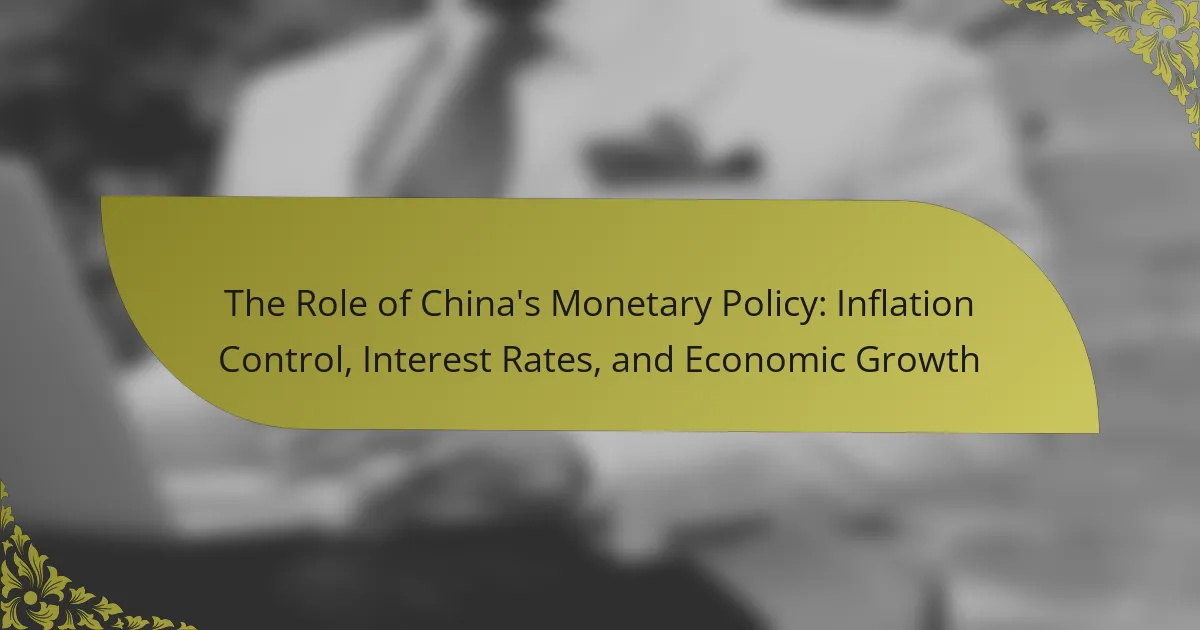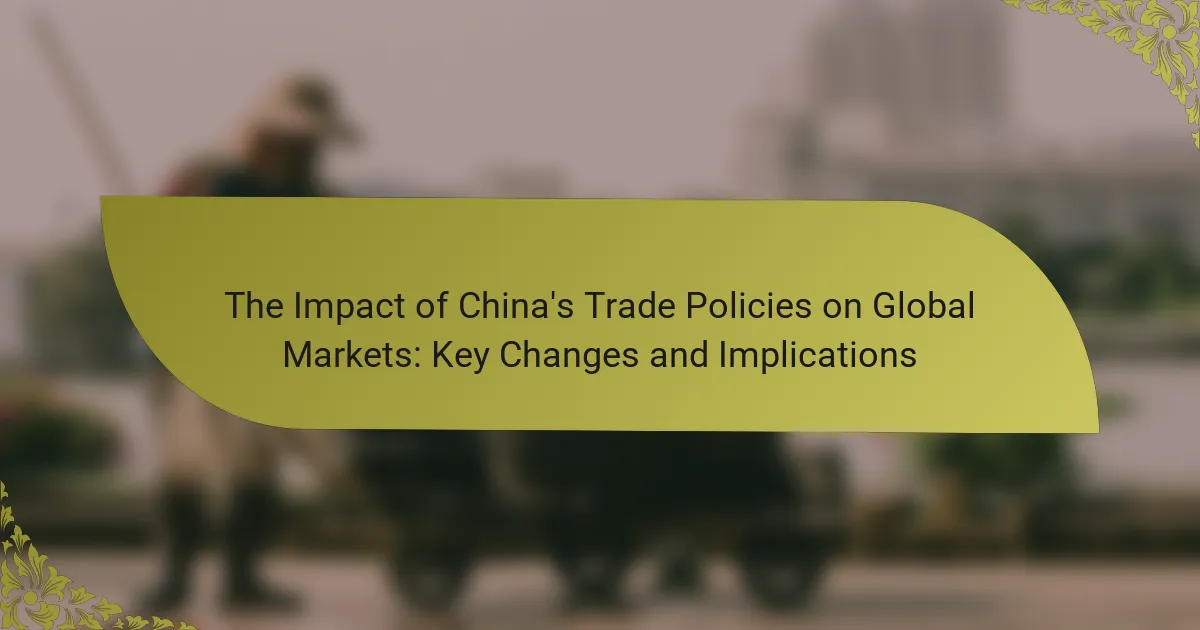

E-commerce Growth in China: Consumer Behavior, Investment Trends, and Competitive Landscape
E-commerce in China has reached approximately $2.8 trillion in sales in 2023, marking a 12% growth from the previous year, with mobile commerce driving over 75% of transactions. The article explores consumer behavior trends, highlighting the shift towards online shopping for convenience and variety, as well as the rise of social commerce. It also examines…

Analyzing China’s Tech Industry: Innovations, Market Leaders, and Investment Opportunities
China’s tech industry encompasses a diverse range of technology-driven sectors, including telecommunications, e-commerce, artificial intelligence (AI), and hardware manufacturing, with major players such as Alibaba, Tencent, and Huawei. In 2022, this industry contributed approximately 7.8% to China’s GDP, highlighting its significance in the economy. Innovations in AI, 5G technology, and electric vehicles are driving growth,…

Building a Sustainable Business Model in China’s E-commerce Sector
The article focuses on sustainable business models within China’s e-commerce sector, emphasizing the integration of economic viability, social responsibility, and environmental stewardship. It highlights consumer preferences for sustainability, with 40% of Chinese consumers prioritizing eco-friendly practices in their purchasing decisions. Key practices include reducing carbon footprints, promoting fair labor, and ensuring ethical sourcing, which enhance…

The Influence of China’s Environmental Regulations: Sustainability Goals, Economic Impact, and Industry Adaptation
China’s environmental regulations are a comprehensive framework of laws and policies designed to safeguard the environment and foster sustainable development. Key components include the Environmental Protection Law of 2014, which enforces stricter penalties for violations, and the Air Pollution Prevention and Control Action Plan, aimed at improving air quality. These regulations significantly influence the economy,…

Navigating Regulatory Compliance for Foreign Entrepreneurs in China
Navigating regulatory compliance is critical for foreign entrepreneurs operating in China. This article outlines the essential legal and regulatory frameworks that must be adhered to, including business registration, taxation, labor laws, and environmental regulations. It highlights the complexities of the regulatory environment, which can vary by industry and region, and discusses common challenges such as…

Challenges and Opportunities for SMEs in China’s Global Trade
Small and Medium Enterprises (SMEs) in China face significant challenges in global trade, including access to finance, regulatory compliance, and intense market competition. Approximately 60% of SMEs report difficulties in securing loans, while navigating complex international regulations adds to their burdens. Despite these obstacles, SMEs have substantial opportunities to expand internationally through China’s trade agreements…

Insights into China’s Real Estate Market: Investment Trends, Policy Impacts, and Economic Indicators
China’s real estate market is currently experiencing significant changes, characterized by a shift towards affordable housing, increased government regulation, and a focus on sustainability. Recent trends indicate stabilization in property prices across major cities, alongside a rising demand for rental properties driven by urbanization. The market’s dynamics play a crucial role in global investment, with…

Innovative Funding Strategies for Startups in China
Innovative funding strategies for startups in China encompass various methods such as government grants, crowdfunding, venture capital, angel investing, and incubator programs. Government grants provide financial assistance without equity loss, while crowdfunding allows startups to gather funds directly from the public. Venture capital firms invest in promising startups, offering both funding and mentorship, with over…

The Role of China’s Monetary Policy: Inflation Control, Interest Rates, and Economic Growth
China’s monetary policy is a key mechanism for managing the country’s economic landscape, focusing on inflation control, currency stabilization, and economic growth promotion. The People’s Bank of China (PBOC) employs various tools, including interest rate adjustments and reserve requirement ratios, to influence the money supply and credit availability. Lowering interest rates can encourage borrowing and…

The Impact of China’s Trade Policies on Global Markets: Key Changes and Implications
China’s trade policies are centered on export-driven growth, tariff adjustments, and strategic trade agreements, which aim to enhance its economic development and global market presence. The country employs tariffs to protect domestic industries while pursuing negotiations to improve market access, exemplified by initiatives like the Belt and Road Initiative. Recent shifts toward greater openness, including…








